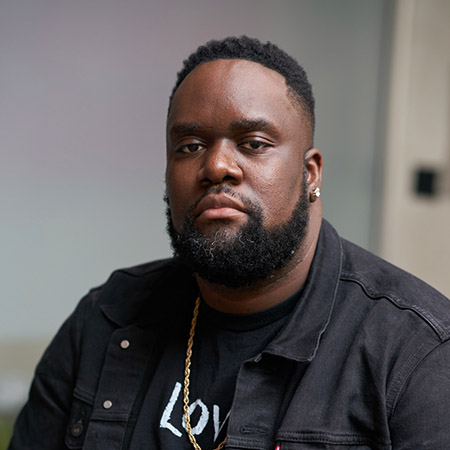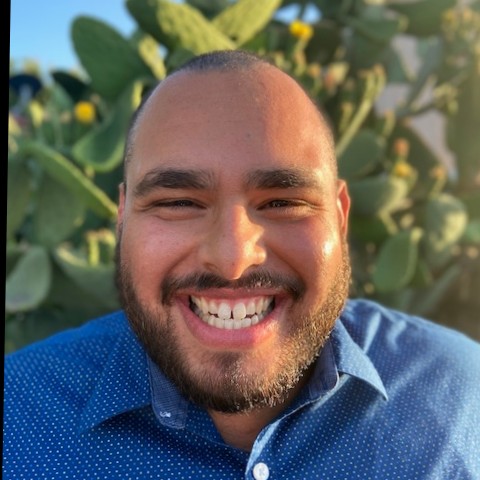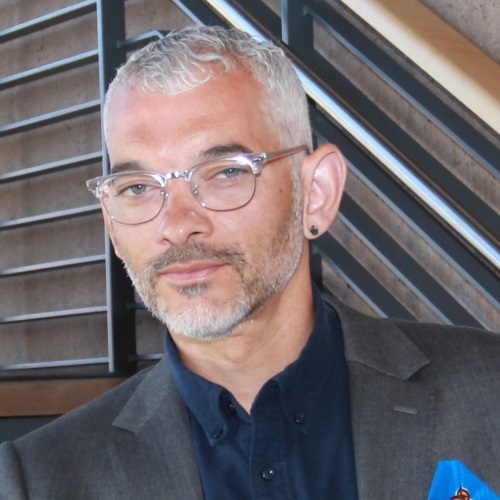#SchoolsNotPrisons: Attend the Informatics Seminar on Participatory Action Research
Don’t miss the April 5 talk by Dr. David Turner III, which doubles as the keynote for UCI’s third Datafication and Community Activism workshop.

You’re invited to attend an engaging talk at UC Irvine by Dr. David Turner III, senior advisor at the Alliance for Boys and Men of Color, on Friday, April 5, 2024 at 2 p.m. Turner will discuss how he has led efforts to develop internal infrastructure as well as campaigns that uplift community schools by transforming discipline and decriminalizing youth and communities of color.
#SchoolsNotPrisons
“#SchoolsNotPrisons: Participatory Action Research Notes from the abolitionist movement to reimagine public safety in The Carceral State” will take place in DBH 6011 as part the Informatics Seminar Series of UCI’s Donald Bren School of Information and Computer Sciences (ICS). It also serves as the keynote for DCA 2024, the third Datafication and Community Activism workshop at UCI.
Turner will detail how communities have worked collaboratively to support the #SchoolsNotPrisons movement, replacing policies that lead to mass incarceration with social welfare programs that benefit students. Drawing from his 12 years of organizing experience and field notes, he will share how he has helped local youth gather more than 30,000 participatory action research surveys and create successful campaigns at nearly every level of government. In particular, he will answer questions such as
- What strategies do these movements use?
- How do these movements incorporate direct action organizing, strategic policy demands, electoral strategies, and research to facilitate social change?

“It’s such an important talk for both undergrad and grad students as well as professors — for pretty much anybody in the university interested in looking at inspirational models of how to partner with our communities in a way that honors their questions, ideas and demands,” says Uriel Serrano, an ICS postdoc researcher in the Department of Informatics. “We as researchers tend to come up with the questions first, and then enter spaces and communities, and I think what Dr. Turner does is oftentimes even the questions and the projects themselves are co-created with community, including young people.”
Datafication and Community Activism

Serrano is leading the two-day DCA workshop in collaboration with Informatics Professor Roderic Crooks, who started DCA in 2019 to help scholars and the broader tech sector better understand the “datafication” of society — that is, the ways in which more and more parts of our public and private lives are mediated by data.
“In starting the workshop, I was looking for a way to describe the relationship between minoritized communities and datafication,” says Crooks. The workshop brings together scholars, journalists, graduate students, artists, adjunct lecturers, community activists and data/information professionals in support of activist responses to datafication in minoritized communities. “To date, we have been fortunate to work with many national and regional organizations who are generally interested in digital data but are specifically concerned with civic education, abolition of police, racial discrimination in computational systems, data-driven government services, reintegration of formerly incarcerated people, economic empowerment, and many other issues of interest to working-class communities of color.”
Crooks and Serrano are working to expose and address the harm caused by datafication and to support ethical data collection and analysis for community-based advocacy projects. “We’re interviewing about a hundred community organizers across the country and asking questions about their data practices,” says Serrano. “What we’ve learned is that many community organizers are looking for spaces where they can learn from other organizers, like Dr. Turner, to gain insight into tools and to learn how to write surveys, conduct focus groups, ask research questions and design participation research projects.”
The DCA workshop, including its keynote, thus facilitates conversations between community organizers and academics with access to resources and information that could inform advocacy work. “Community organizers are some of the best researchers and ethnographers I know. They’re already thinking very deeply about social issues,” says Serrano. “I can only imagine what it would mean for them to have access to data analysis software or other tools readily available in academia to support their work. The heart of DCA is bringing people together to facilitate these connections.”
Learn more about Dr. Turner and his #SchoolsNotPrisons talk and plan to attend! The 2-3 p.m. seminar will be followed by a one-hour networking session.
— Shani Murray